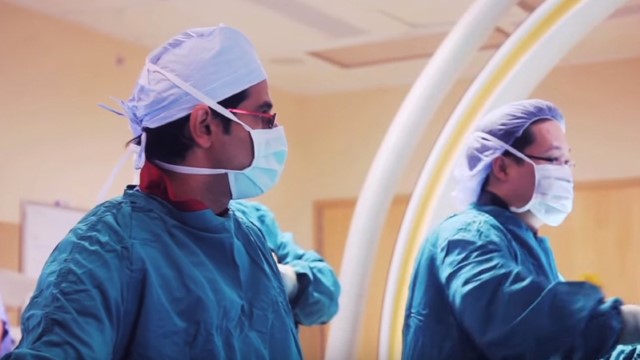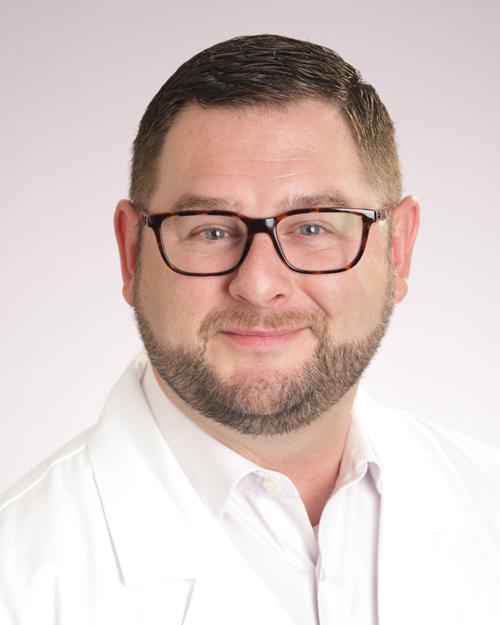
Norton Brownsboro Hospital became a Comprehensive Stroke Center in 2015. It is one of only 143 hospitals in the nation to receive this prestigious designation.
Patients with severe strokes caused by occlusion of large vessels or bleeding are more likely to survive when they’re taken to a Comprehensive Stroke Center (CSC). That’s why the American Heart Association and American Stroke Association recommend emergency medical services (EMS) take these stroke patients to a Comprehensive Stroke Center, even if it means traveling farther to get there.
The American Heart Association/American Stroke Association (AHA/ASA) asked its Lifeline Stroke Committee to develop a stroke triage algorithm for EMS. The committee concluded that if a severe stroke is suspected, a 15-minute transport delay was acceptable to get patients to a Comprehensive Stroke Center instead of a Primary Stroke Center (PSC). In rural communities, a 20- to 30-minute delay was deemed acceptable to get patients to a CSC.
Norton Brownsboro Hospital became a Comprehensive Stroke Center in 2015. It is one of only 143 hospitals in the nation to receive this prestigious designation.
Norton Brownsboro Hospital earned the designation by first demonstrating compliance with stroke-related standards as a Primary Stroke Center and then meeting additional requirements. These included advanced imaging capabilities, endovascular stroke intervention, 24/7 availability of personnel and specialized
treatments, and additional staff education in care of complex stroke patients.
“We’re proud of the world-class care we’re able to provide our stroke patients at Norton Brownsboro Hospital,” said Tom L. Yao, M.D., co-director of the stroke program at Norton Neuroscience Institute.
Giving stroke victims the best care is especially relevant in Kentucky, where one of every 26 adults has had a stroke, according to a state report.
Comparing Comprehensive Stroke Centers with Primary Stroke Centers, a study published in the Journal of the American Heart Association concluded: “Hemorrhagic stroke patients admitted to CSCs are more likely to receive neurosurgical and endovascular treatments and be alive at 90 days than patients admitted to other hospitals.”
The study looked at 90-day survival for almost 37,000 hemorrhagic stroke patients at 87 New Jersey hospitals from 1996 to 2012. Researchers found a 7 percent reduced risk of death for all hemorrhagic strokes and a 27 percent reduced risk of death in patients with subarachnoid hemorrhage.
A study in Japan arrived at similar results: Mortality rates were lower at Comprehensive Stroke Centers. Looking at more than 53,000 emergency-hospitalized patients, the researchers found mortality rates at CSCs were 7.8 percent lower for patients with ischemic stroke, 16.8 percent lower for intracerebral hemorrhage and 28.1 percent lower for patients with subarachnoid hemorrhage. The findings were published in the journal PLOS One.
A third study, in the journal Stroke, compared how well ischemic stroke patients fared at a single hospital before and after it became a CSC. The 30-day mortality for more than 3,000 patients dropped 8.2 percent to 5.9 percent.
Another advantage of Certified Stroke Centers is the consistent high level of care every day of the week. An analysis of more than 134,000 stroke patients in New Jersey hospitals showed CSCs had no gap in the survival rate between weekday and weekend admissions. At other stroke centers, the mortality rate was higher on weekends.
Unfortunately, there is no way to know if the stroke is ischemic or hemorrhagic in the field.
It is recommended that severe cases be identified by using an evidence-based stroke severity tool. If a stroke victim scores positive for possible large vessel occlusion, the extended travel to reach a CSC is supported by the panel.
“The CSC criteria address many aspects of hemorrhagic stroke care that are beyond the capabilities of even a large PSC,” the panel concluded.

